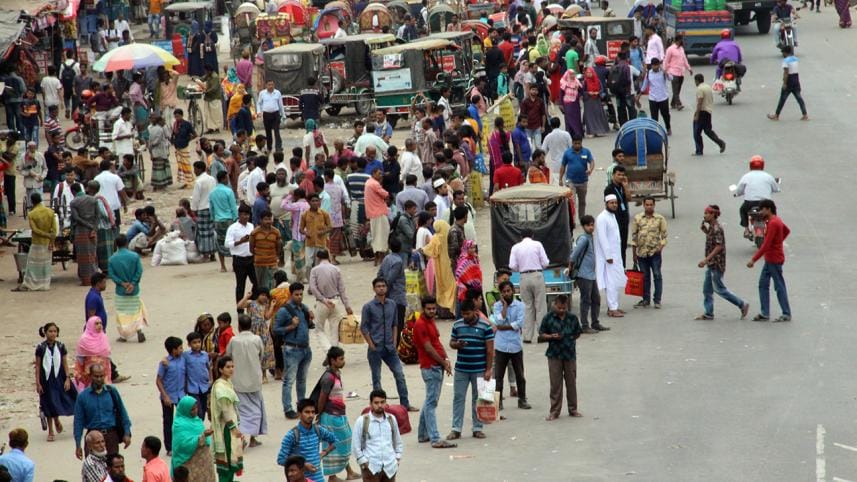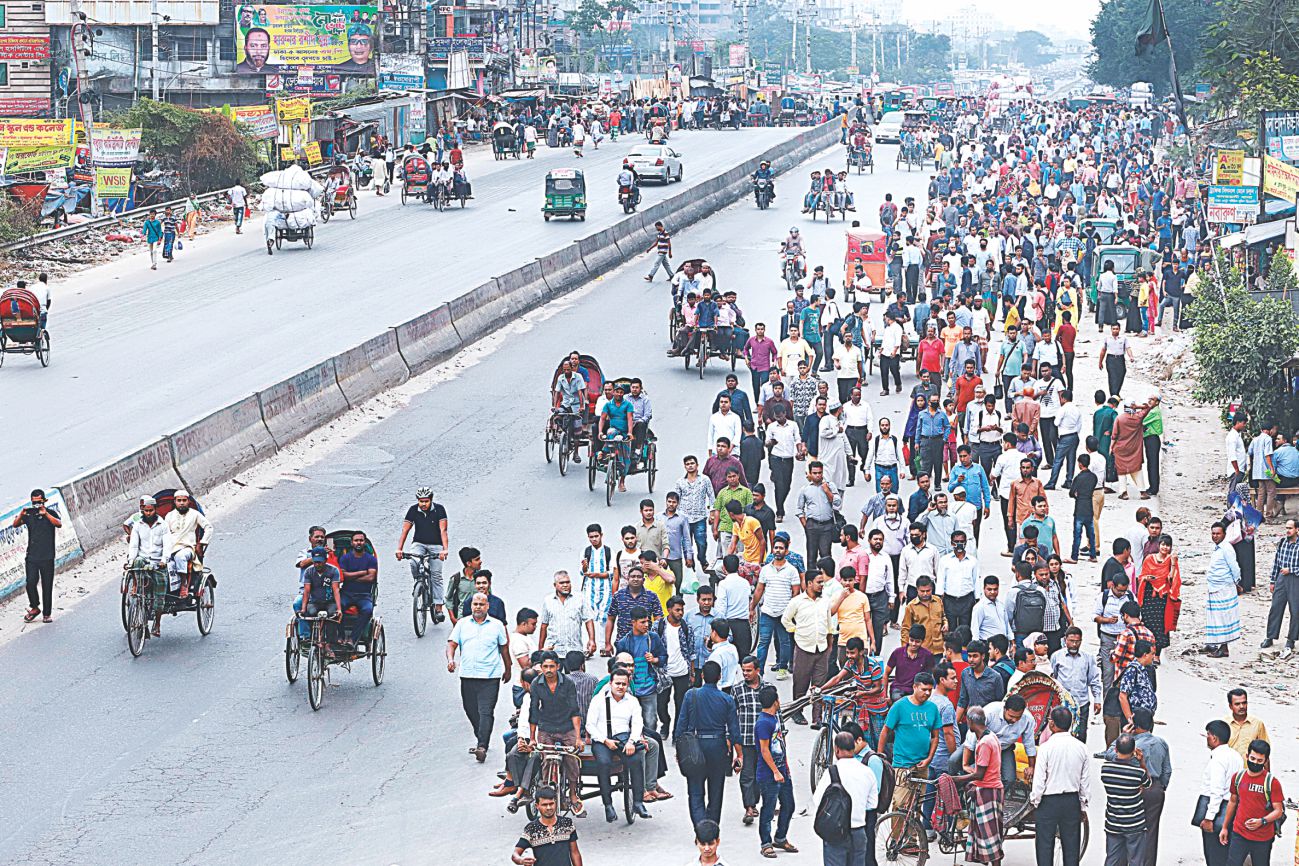Transporters mulling tougher strike

Transport workers are considering tougher programmes to meet their demands.
They are now mulling a 96-hour strike next month, Osman Ali, general secretary of Bangladesh Road Transport Workers Federation, told The Daily Star today.
According to what he said, the leaders are still working on fixing the dates; but most likely, it will be enforced on unanimous support on the third week of November.
Inquired over the ongoing public sufferings, he blamed it all on the government. "We informed the government about our demands a long time ago, but it went unheeded. We have been forced to go on a strike. The government is responsible here."
WHY THE STRIKE?
The transport workers are agitating against the recently-passed Road Transport Act, which has unbailable provisions and up to Tk 5 lakh in fine.
Their demands include making all offences under the Road Transport Act “bailable”, cancellation of the provision that allows a worker to be fined Tk 5 lakh for involvement in a road accident, changing the minimum educational qualification required to obtain driving licences from class-VIII to class-V, and ending harassment by police on roads.
Read more: Ambulance held for hrs, infant dies
WHAT DO WE KNOW ABOUT THE ROAD TRANSPORT ACT?
On September 19, the parliament passed the much-anticipated Road Transport Act-2018 amid criticisms over lenient punishments for deaths caused by reckless driving.
According to the law, if anybody causes an accident by reckless and negligent driving, and kills or injures someone seriously, such person would face a maximum sentence of five years in jail or a fine of Tk 5 lakh or both.
However, if it is found that a driver has deliberately killed anyone or not averted a killing in a road accident, the matter would fall under either section 302 (murder) or 304 (culpable homicide) of the Penal Code, according to the explanation of the proposed act by the law minister.
The maximum punishment under section 302 of the Penal Code is the death penalty while it is life imprisonment under section 304.
Asked about the public suffering caused due to the strike, the general secretary of the federation said that they are not responsible for the suffering, rather it is government who is responsible.



 For all latest news, follow The Daily Star's Google News channel.
For all latest news, follow The Daily Star's Google News channel. 
Comments